Morocco's Silent Biotech Breakthrough: A Healthier African Future
)
Beyond its industrial growth, Morocco is undergoing a "silent biotech breakthrough". This involves the strategic integration of Artificial Intelligence (AI) in drug discovery and the innovative application of CRISPR (Clustered Regularly Interspaced Short Palindromic Repeats) gene-editing technologies. The focus is on critical African health challenges, particularly malaria and sickle cell anaemia, positioning Morocco as a potential leader in African biotechnology. This convergence of advanced technologies and a clear focus on regional health promises tailored healthcare solutions for the continent’s unique challenges.
A Robust Pharmaceutical Foundation
Morocco’s well-established pharmaceutical industry – the second-largest in Africa – provides a strong foundation for its burgeoning biotech sector. Proactive government support through tax incentives and dedicated industrial zones (like Medipolis in Casablanca) has enabled strong domestic manufacturing, meeting over 70% of national medicine demand. Morocco’s ambition to become a regional vaccine production hub, supported by international partnerships and infrastructure investments, underscores its commitment and potential to serve the African continent, contributing to pandemic preparedness.
Harnessing AI for Drug Discovery
AI is transforming drug discovery by accelerating the identification of potential drug targets and candidates through sophisticated machine learning and computational power. This is crucial for complex diseases like malaria, where AI can efficiently analyse biological datasets and predict molecular interactions. Global collaborations highlight AI’s potential in addressing neglected tropical diseases. Within Morocco, institutions like Université Mohammed VI Polytechnique (UM6P) are actively exploring AI applications in biological and medical research, positioning the nation at the forefront of this technological integration in African healthcare innovation.
AI's Targeted Applications in Combating Epidemic Disease
AI demonstrates considerable promise in developing targeted interventions for malaria and sickle cell anaemia. For malaria, AI algorithms analyse chemical compounds to predict their effectiveness as antimalarial agents. Tools like deep learning models predict inhibitory properties against various parasite strains. For sickle cell anaemia, AI analyses genomic data to identify genetic modifiers influencing disease severity, paving the way for personalised therapies. AI-powered platforms enable tailored drug treatments based on individual genetic profiles, potentially leading to more effective management and improved patient outcomes.
The CRISPR Gene-Editing Revolution
CRISPR gene-editing technology is rapidly shaping Morocco’s biotech innovation sphere. Institutions like UM6P are actively exploring its applications in advanced diagnostics and groundbreaking therapeutics for genetic disorders and infectious diseases. This reflects a strategic adoption of impactful technologies for African health challenges.
Moroccan scientists are adapting CRISPR-Cas9 for applications relevant to African health needs. Research at the Mohammed VI Institute for Innovation in Biotechnology (I2B) focuses on CRISPR-based diagnostics for rapid detection of prevalent infectious diseases like malaria, tuberculosis and HIV. Morocco’s participation in international scientific forums underscores its commitment to knowledge exchange and collaboration within the African scientific community in this transformative field.
CRISPR's Transformative Potential
CRISPR technology offers unprecedented potential for targeted and potentially curative interventions for both malaria and sickle cell anaemia. For malaria, CRISPR-based gene drive technologies are being explored to disrupt mosquito transmission by introducing genetic modifications that reduce susceptibility or impair reproduction, offering a sustainable control strategy. For sickle cell anaemia, CRISPR-based gene therapies have shown promise in correcting the faulty gene or promoting foetal haemoglobin production, with encouraging early clinical trial results offering hope for long-term disease modification. While direct Moroccan CRISPR research in these therapies is nascent, global efficacy data presents a significant opportunity for Morocco to adapt and implement these treatments for its population and the wider African continent.
Addressing Critical Health Challenges in Africa
Despite Morocco’s malaria-free status, the disease remains a major public health crisis in sub-Saharan Africa. Increasing insecticide and drug resistance necessitate novel interventions. Sickle cell anaemia also poses a significant genetic health burden across Africa, with high prevalence and childhood mortality rates in certain regions. Morocco’s emerging CRISPR research offers potential pathways to address this genetic disorder within its population and across the continent.
Biotech's Catalytic Economic Contribution and Morocco's Strategic Opportunity
Morocco’s burgeoning biotech sector is poised to significantly contribute to the national economy through increased investments, job creation and export opportunities within the African market. Government initiatives like the MAD1 billion National Research and Innovation Development Program (PNARDI) support research and innovation in biotechnology and health. Institutions like MAScIR and UM6P are driving cutting-edge biotech research and development.
Morocco’s strategic location, stable environment and growing investment in research infrastructure make it attractive for biotech investment and partnerships. Its participation in the African Continental Free Trade Area (AfCFTA) enhances its potential as a key hub for biotech innovation, manufacturing and distribution for the African market.
Partnering in Morocco's Biotech Progress for a Healthier Africa
Morocco’s emergence as a significant player in biotechnology, driven by its strategic adoption of AI and gene editing, presents a unique opportunity to contribute to a healthier future for the African continent. WAM Morocco is committed to showcasing these advancements and fostering collaborations that will drive innovation and impact.
Connect with Morocco's Biotech and Pharma Leaders
WAM Morocco invites you to be an integral part of this transformative sector:
- Collaborate: Partner with pioneering Moroccan biotech companies, leading research institutions and innovative researchers at the forefront of addressing critical African health challenges.
- Invest: Explore the burgeoning and impactful opportunities within Morocco’s dynamic biotech ecosystem, recognising its potential for significant growth and positive health outcomes across Africa.
- Learn: Stay informed about the latest groundbreaking discoveries and strategic developments within Morocco’s rapidly advancing biotech sector through WAM Morocco’s resources and expert insights.
- Engage: Connect with key industry leaders, influential policymakers and potential partners at WAM Morocco events to forge meaningful collaborations and accelerate progress in African biotechnology.


